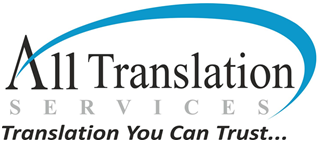Legal Translation in Canada: Navigating the Complexities of Bilingual Documentation
___Why Accurate Legal Translation is Important
Canada is a bilingual nation, with English and French as its official languages. This unique linguistic landscape presents a complex challenge for legal documentation, requiring precise and legally sound translations. Whether it’s contracts, court transcripts, immigration papers, or government regulations, legal translation plays a vital role in ensuring clarity, compliance, and justice for all. In this blog, we will explore the importance of legal translation in Canada, the challenges it poses, and best practices for navigating bilingual legal documents effectively.
Need a reliable local language translation service in Prince Edward Island, Quebec, Red Deer, Regina, or in Richmond Hill? Our Toronto-based translation company is here to provide top-notch assistance. Reach out today to explore our wide range of translation services!
Legal translation is essential in Canada for various reasons, including:
Compliance with Bilingual Laws
The Canadian legal system operates in both English and French, with some provinces like Québec having French as their primary legal language. Laws such as the Official Languages Act require legal documents to be available in both languages, making legal translation a necessity.
Business and Commercial Transactions
Companies operating in Canada, especially those doing business in Québec, must ensure their contracts, policies, and legal agreements are accurately translated to comply with provincial and federal regulations.
Immigration and Citizenship Applications
Immigration to Canada requires various legal documents such as birth certificates, police clearances, and affidavits, which must be accurately translated and certified for acceptance by Immigration, Refugees and Citizenship Canada (IRCC).
Court and Legal Proceedings
Court cases in bilingual provinces require legal documents to be presented in the language of choice of the involved parties. This makes high-quality legal translation essential to ensure fairness and transparency.
Challenges of Legal Translation in Canada
Legal translation is one of the most complex types of translation, requiring specialized expertise and an in-depth understanding of Canadian law. Here are some key challenges:
Maintaining Legal Accuracy
Legal terminology varies between English and French, and a literal translation can lead to misinterpretation. For example, the term “common law” in English does not have an exact equivalent in French, and translators must choose the most appropriate term based on context.
Differences Between Common Law and Civil Law
Canada operates under a dual legal system:
- Common law (used in most provinces and territories) follows precedent-based rulings.
- Civil law (used in Québec) relies on codified laws.
Legal translators must be familiar with both systems to ensure the translated documents are legally valid.
Certified vs. Non-Certified Translation
Legal documents often require certified translations to be considered legally binding. This means they must be translated by a certified translator recognized by organizations such as ATIO (Association of Translators and Interpreters of Ontario) or OTTIAQ (Ordre des traducteurs, terminologues et interprètes agréés du Québec).
Cultural and Linguistic Nuances
Legal language is highly formal, and even minor errors can lead to legal disputes. Translators must ensure that the tone and intent of the original document remain intact while respecting cultural and linguistic norms.
Best Practices for Legal Translation in Canada
To navigate the complexities of bilingual legal documentation, businesses and individuals should follow these best practices:
Work with Certified Legal Translators
Hiring a certified translator ensures that your legal documents meet the required standards. Certified translations are often required for:
- Court documents
- Immigration papers
- Contracts and agreements
- Government forms
Ensure Translation Meets Provincial Legal Requirements
Different provinces have different legal translation requirements. For example:
- In Québec, contracts must be in French, but bilingual versions are often used.
- In Ontario and other provinces, English documents are generally accepted, but bilingual contracts are preferred in federal matters.
Use Specialized Legal Terminology
Legal translation requires precise terminology. Mistakes in legal documents can result in financial losses or legal liability. Ensure that your translator is familiar with:
- The legal systems of both languages
- Industry-specific legal terms
- Legislative differences between jurisdictions
Verify Translations with a Legal Professional
Even a minor mistake in legal translation can lead to misinterpretation. Having a lawyer review the translated document can ensure its legal validity and accuracy.
Keep Confidentiality and Security in Mind
Legal documents often contain sensitive information. Work with professional translators who follow strict confidentiality agreements and use secure file transmission methods to protect your data.
Conclusion
Legal translation in Canada is a complex but essential process that ensures fairness, compliance, and clear communication in the country’s bilingual legal landscape. Whether you’re a business, an individual, or a law firm, working with experienced legal translators is crucial to avoid errors that could have serious legal consequences. By following best practices and hiring certified professionals, you can navigate bilingual legal documentation with confidence and precision.
Looking for expert legal translation services in Canada? Contact us today to ensure your legal documents are accurate, certified, and legally compliant.
